

“There is more fear right now in the local Muslim community than after 9/11 because of the proximity of the recent violent attack in San Bernardino and the xenophobia present in U.S. political culture,” Shakeel Syed told an interfaith gathering attended by about 100 people last Sunday. Syed is executive director of the Islamic Shura Council of Southern California. He added that law-abiding, peaceful Muslims living in the Los Angeles-area are feeling paranoid.
To provide comfort and information for the local Muslim community, the Shura Council and the King Fahad Mosque of Culver City organized the event. Most of the crowd were first generation Muslim immigrants from South Asia, the Far East, West and North Africa, and the Middle East, and overwhelmingly male. The others present represented local Christian congregations, human rights activists and neighbors, all wanting to express solidarity with the Muslim community.
Shura Council Director: “Shame on us if we expect our rights to come to us on a platter.” » Read more about: Tolerance and Solidarity at Culver City Mosque Gathering »


 Seven years ago local officials in Marin County, California organized to form a nonprofit electricity company with the noblest intentions. Buying and selling electricity allowed the group, Marin Clean Energy (MCE), to route around the local utility giant, Pacific Gas & Electric, which for years had resisted its customers’ pleas for cleaner, more reliable power, all the while “greenwashing” its image with marketing campaigns. “People wanted more of a sense of how their dollars were being invested,” Alex DiGiorgio, MCE’s community development manager, tells Capital & Main. “They wanted more access to competitively priced renewable energy.”
Seven years ago local officials in Marin County, California organized to form a nonprofit electricity company with the noblest intentions. Buying and selling electricity allowed the group, Marin Clean Energy (MCE), to route around the local utility giant, Pacific Gas & Electric, which for years had resisted its customers’ pleas for cleaner, more reliable power, all the while “greenwashing” its image with marketing campaigns. “People wanted more of a sense of how their dollars were being invested,” Alex DiGiorgio, MCE’s community development manager, tells Capital & Main. “They wanted more access to competitively priced renewable energy.”
They also wanted to “catalyze local project development,” DiGiorgio says, to see their electricity bills go toward something more beneficial for the local community than large hydroelectric dams, polluting gas-fired power plants and a nuclear facility built over an earthquake fault.
But critics of the local-power movement say agencies like MCE — whose very reason for being was to stimulate renewable energy development — mostly support already extant renewable facilities.
» Read more about: Power Struggle: Will Local-Energy Groups Come Clean? »


There’s a chance that lawmakers in your city or state have recently floated something called “Pay for Success” as an innovative way to fund public services. Also known as Social Impact Bonds, Pay for Success programs bring the high-risk attitude of venture capital to critical, yet underfunded public services.
This week we, along with our allies, released A Guide for Evaluating Pay for Success Programs and Social Impact Bonds to help advocates better understand these new alternatives to public financing. Now communities can ask tough questions about a Pay for Success programs’ impact on vulnerable individuals and the public.
Though Wall Street investors like Goldman Sachs and Bank of America consider Pay for Success a “win-win,” some of these new programs look better on paper than they do in reality. The first program tried in the U.S. failed to reduce the rate by which adolescents housed on Rikers Island returned to jail.


As Governor Jerry Brown touted California’s environmental initiatives and prodded world leaders in Paris to embrace tougher environmental policies during the United Nations summit on climate change, it was instructive to look back at how one of Brown’s top environmental priorities suffered a major defeat in the California Legislature this year.
That priority was to establish a 50 percent reduction in petroleum usage in cars and trucks by 2030. Brown’s failure to win its passage in an overwhelmingly Democratic Legislature clearly illustrates not only the influence of the fossil fuel lobby, but also the continued rise of a new breed of Democrats who are exceedingly attentive to big business, while tone-deaf toward their party’s traditional progressive base.
Petroleum reduction was a key part of a proposed law, introduced as Senate Bill 350, which also called for steps to increase energy efficiency in existing buildings and require that 50 percent of California’s energy come from renewable sources,
» Read more about: How Big Oil Spiked Jerry Brown's Climate Change Agenda »


You have to hand it to libertarian writer John Tierney. He doesn’t give up easily. His long-winded 1996 article, “Recycling Is Garbage,” allegedly smashed the New York Times Magazine‘s hate-mail record. It covered the same ground as his recent New York Times op-ed, “The Reign of Recycling,” stating: “Recycling may be the most wasteful activity in modern America: a waste of time and money, a waste of human and natural resources.”
Is recycling really “the most wasteful activity in modern America?” That’s quite a charge. (What about all that Kardashian coverage?) But it may be true that it would be cheaper to put all our waste in a hole someplace and forget about it. Assuming, as Tierney does, that there are enough conveniently located holes. It would be even cheaper to use the medieval method of tossing it in the street.
» Read more about: NY Times Writer Recycles Old Ideas About Waste and Landfills »
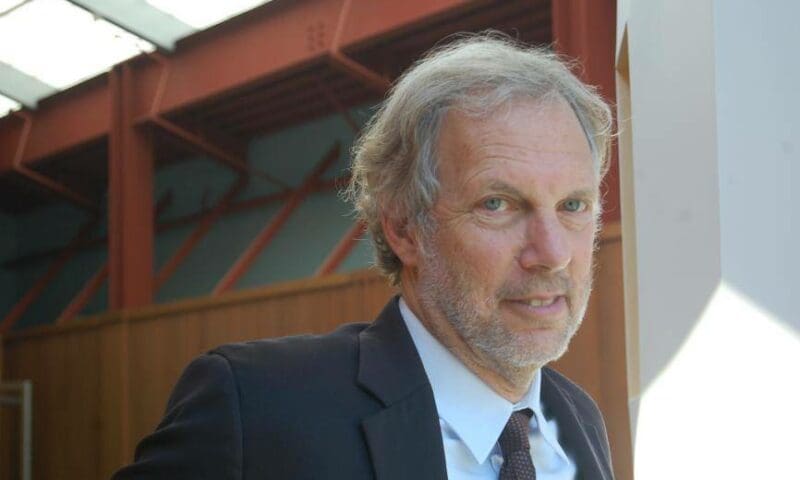
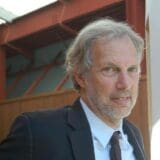
The debate may be over in the scientific community about the threat of man-made climate change. But as world leaders continue negotiating in Paris this week at an international climate conference, many questions remain about what it will take to come up with a workable plan to limit greenhouse gas emissions enough to avoid catastrophic warming.
University of Massachusetts at Amherst economist Robert Pollin injects a note of optimism into the discussion with his recently published book, Greening the Global Economy (MIT Press). Pollin estimates that we need to invest about 1.5 percent of global GDP annually in clean energy and energy efficiency in order to slow warming enough to maintain a livable planet. The good news, he argues, is that we can decarbonize our economy without sacrificing economic growth and prosperity. Capital & Main interviewed Pollin while he was in New York on a book tour.[divider]
Capital &
» Read more about: Robert Pollin Sees a Bit of Rainbow During Paris Climate Talks »


The story of Mary and Joseph leaving their small town for Bethlehem has spawned dramatizations, poems, carols and a lot more since it was first told in the late First Century CE. The Latin American enactment, called Las Posadas, runs for nine nights, from December 16 through Christmas Eve. Each night families make a procession through their communities, walking from one house to another, begging for space for the holy couple and a birthing place for the baby Jesus. At every home they are turned away – until one family welcomes these poor wayfarers, usually with warm drinks and sweets.
The festival reenacts the ancient commandment from the Jewish tradition that we should welcome the stranger, the foreigner, the immigrant – because at one time we were all newcomers to this land.
Most Americans have forgotten this and have instead become very fearful after the November Paris attacks. Even while 9,000 refugees from Syria,
» Read more about: Immigration Crisis: The Strangers Are Us »
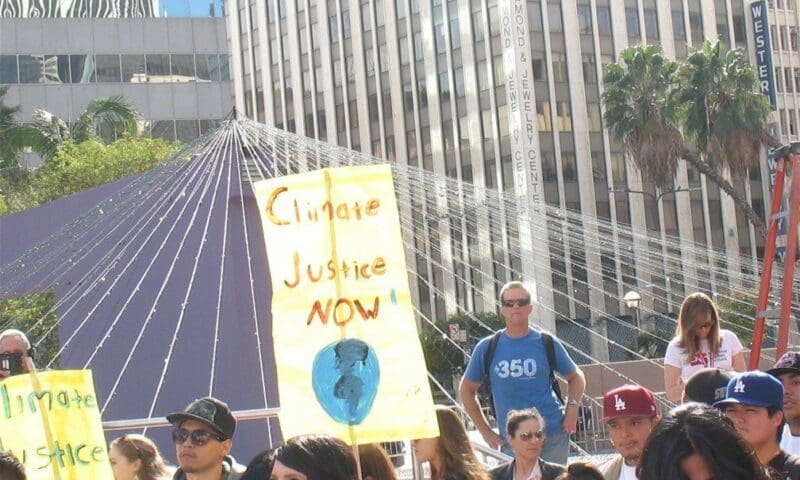

On Thursday afternoon a fired-up, thousand-strong gathering of nurses and environmental activists packed into Los Angeles’ Pershing Square to voice their concerns about the bleak prospects of climate change, and to demand a global agreement that reduces greenhouse gas pollution. The rally was timed to coincide with the current United Nations Climate Change Conference in Paris and other environmental justice protests taking place across the U.S.
Dubbed “The Climate Crisis Is a Public Health Crisis,” the event was organized by the National Nurses United (NNU), a labor union whose members were wrapping up a two-day convention at the downtown JW Marriott.
Rolanda Watson-Clark made the trip from Chicago, and told Capital & Main, “Nurses have always been at the front of social movements, so here we are.” She explained how, in the Windy City, inner city children are deeply affected by petroleum waste products in the air.
» Read more about: Nurses Address Climate Change: "Our Planet Is My Patient!" »
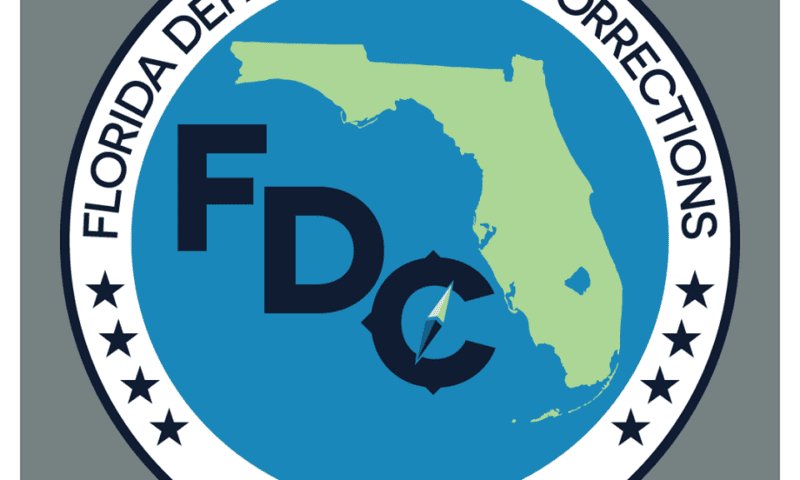

It’s unusual for a private contractor to terminate its own contract, especially a contract for $1.2 billion. But that just happened in Florida.
After two years of controversy, Corizon, America’s largest for-profit prison health care provider, just decided to end its care of 74,000 prisoners in the state. The company—which is owned by a private equity firm—says it is leaving because the contract terms aren’t flexible enough. But Corizon’s time in Florida has a familiar ring to it: understaffing, poor service and hundreds of lawsuits by prisoners.
Last year, 346 prisoners died in Florida prisons—the highest number in the state on record, even though the total number of prisoners has declined. Of those prisoners, 176 were listed with no immediate cause of death.
A recent state audit found nursing and staffing shortages, “notable disorganization” among medical records, and “life threatening” conditions.
» Read more about: Private Prison's Health Care: A Clear and Present Danger to Inmates »
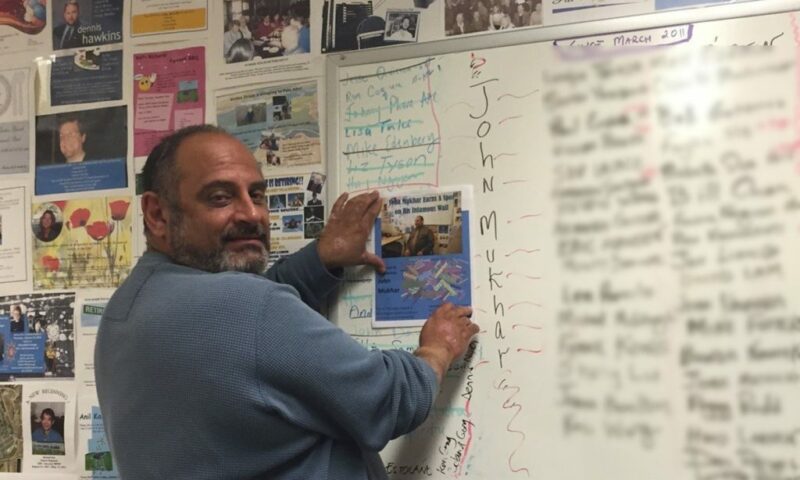

San Jose Mayor Sam Liccardo has confirmed to Capital & Main that his city is nearing a settlement with its nine non-safety unions over a contentious pension-cutting law that resulted in an exodus of public employees, followed by costly legal actions. Measure B, passed in 2012, sought to reduce pensions for new hires, eliminate extra “bonus” checks to retirees and make it harder to qualify for disability retirement. It also called for veteran workers to either pay much more for their pensions or switch to a pension with reduced benefits.
The two sides appear to be moving closer to a settlement similar to one reached four months ago with police and fire unions.
How close? “Soon,” Liccardo said by telephone. “We don’t [quite] have all the signatures yet.”
Measure B is blamed for a brain drain of San Jose’s top city engineers and technical talent.
The story of Measure B and the damage it left in its wake is of more than academic interest,
» Read more about: Can San Jose Move Past Pension Measure's Toxic Fallout? »


Today kicks off the start of VisionLA ’15, a Los Angeles arts festival performed to coincide with the United Nations’ Conference on Climate Change (COP 21) as it unfolds in Paris. Below are program notes from VisionLA ’15 – please refer to the group’s site for a complete schedule and more information.
Read Judith Lewis Mernit’s Interviews With VisionLA’s Organizers
[divider]
November 30 @ 6 p.m. – 10 p.m.
VisionLA Home Gallery – Bergamot Station,
2525 Michigan Ave., Building G1
Santa Monica
Join us for a celebration of the Power of Art to Make Change at our Gala Opening party for the VisionLA ’15 Climate Action Arts Festival. This opening event will launch L.A.’s first citywide climate action arts festival and is also the opening gala for our wonderful ART MAKES CHANGE fine art exhibition,
» Read more about: VisionLA Climate Change Arts Festival: November 30 Events »


In the Public Interest has made exciting progress over the past few years. Our team has worked incredibly hard, so I’d like to take a step back and share what we’ve been up to.
Even I was surprised by how much we’ve accomplished. We get calls every week from organizations around the country asking for campaign help; from state and local policymakers looking for model bills or support on legislative proposals; and from journalists needing background or quotes. Just recently, a Barcelona TV station interviewed me about private prisons in the U.S. (There are zero in Spain!)
When we added it up, we found that we’ve directly helped state and local organizations in 32 states, and our research and commentary have been cited in over 150 publications, including the New York Times and Wall Street Journal, and local papers across the country like the Cleveland Plain Dealer and Bakersfield Californian.
» Read more about: Public Interest Advocates Tally Up 2015 Victories »
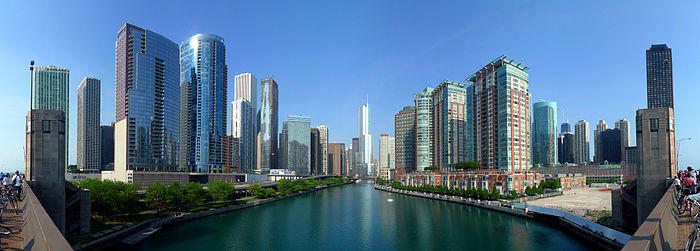

Chicago just took a huge step towards closing the door on irresponsible sales of public assets and reckless outsourcing of public services. Last week, the city council passed an ordinance that mandates real public review of large privatization deals and increases transparency and contractor accountability.
The Privatization Transparency, Accountability and Performance Ordinance (PTAPO) is a significant move by Chicago’s leaders to ensure meaningful accountability to the city’s taxpayers and working families.
Unfortunately for Chicagoans, the rules weren’t in place a decade ago, when then-Mayor Richard M. Daley leased the Chicago Skyway toll bridge to an Australian-Spanish private consortium for 99 years. The bridge has since become one of the most expensive toll-per-mile roadways in the U.S.
But Daley’s lease of the city’s parking meters to Wall Street in 2008 is the ultimate example of privatization gone wrong. Chicago sold the meters to Morgan Stanley at least $1 billion under their value,
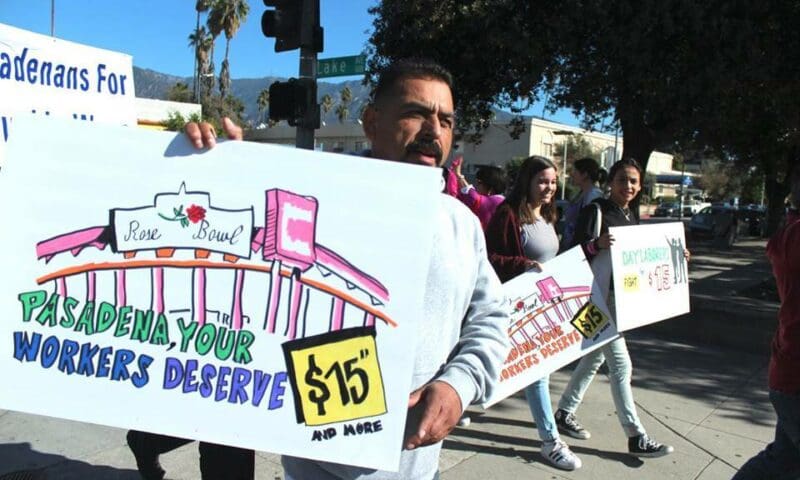

Pasadena, California — home of the annual Tournament of Roses parade and the Rose Bowl football game — is known as the City of Roses. But a broad coalition of low-income workers, middle class professionals, clergy, nonprofit leaders, educators, unions, community and civic groups, and enlightened businesses has come together to transform Pasadena into the City of Raises.
They have built a movement to urge Mayor Terry Tornek and the City Council to adopt a law raising the minimum wage gradually to $15 an hour by 2020, just as the City of Los Angeles and Los Angeles County did last summer, and other area cities (Long Beach, Santa Monica, West Hollywood and Glendale, among them) are considering.
These efforts are part of a growing national movement to improve wages and working conditions for low-wage Walmart and fast-food workers, janitors, hospital employees and others. They’ve been pushing cities to adopt minimum wage laws and pressuring big corporations to increase pay for its low-wage employees.


Bad enough that the climate is changing and humans are causing it; worse, most of us don’t even want to talk about it.
“Where are the books? The poems? The plays? The goddamn operas?” asked author and climate activist Bill McKibben a decade ago on Grist, comparing the climate crisis to the AIDS epidemic, which, McKibben noted, produced “a staggering outpouring of art that, in turn, has had real political effect.”
To be fair, that has started to change: Authors such as Paolo Bacigalupi (The Water Knife) and filmmaker Larry Fessenden (The Last Winter) have begun to address environmental catastrophe in their works. But it’s likely that other authors, artists and goddamn opera writers have assumed that their climate-focused work would struggle for an audience: A recent Pew Research Center poll found that only 42 percent of U.S. citizens consider rising seas and global temperatures disturbing.
» Read more about: The Heat’s On: An L.A. Arts Festival Tackles Climate Change »


There’s something deceptively familiar about the first scene of Young Jean Lee’s play, Straight White Men, receiving its West Coast premiere at the Kirk Douglas Theater. It opens with an American family gathered together for Christmas. The three adult Norton brothers spend a lot of time horsing around their dad’s living room in flannel jammies, re-enacting childhood pranks, recalling old nicknames and play-fighting with one another as though they’re young boys again. It’s the kind of reunion play whose lines often begin, “Remember the time . . .” So we know, with all this holiday cheer and familial merriment, that things are about to go to hell.
Sure enough, eldest son Matt (Brian Slaten) abruptly begins to cry as the brothers and their father eat a Chinese take-out dinner. Matt’s got a secret but this is 2015, so veteran theatergoers raised on the social-issue dramas of the late 20th century surmise it’s not that Matt is gay or that he has an incurable disease – especially since we also know this 90-minute play was written and directed by a New York playwright who is the reigning queen of experimental theater.


Will the United Nations conference on human-caused climate change move toward saving the earth for habitation? That’s what’s at stake as the heads of the world’s nations gather in Paris on November 30 through December 11. They intend to put teeth into the U.N.’s “framework” that is aimed to reduce carbon emissions, and which has been adopted by some 195 countries. But will they?
Bill Gates doesn’t think so. In an interview in The Atlantic, Gates praised countries for pledging to roll back emissions by 80 per cent, but cast doubts about their ability to reach that goal. It’s not that he thinks government is particularly inept and that the private sector could do it. He really doesn’t think that either can or will.
He believes that people will cut the easy stuff first, leaving the hard-to-do for the latter half of the time frame.
» Read more about: Paris Climate Change Conference: A Planet in the Balance »
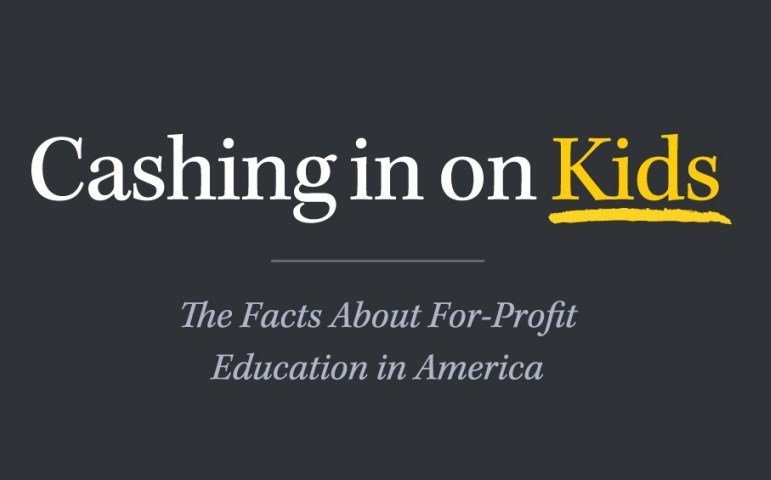

Here’s In the Public Interest’s pick of recent news in for-profit education. Not a subscriber? Sign up. For more from Cashing in on Kids, visit our website.


If legendary labor activist Joe Hill were alive today — and some contend that he is — he would have plenty to say about the state of the American worker. And the country, if it listened, would have plenty to learn.
Hill, who was executed in Utah 100 years ago this month, was an unapologetically radical union organizer whose rough-hewn songs and poems matched the brutal working conditions endured by tens of millions of Americans in the early 20th century. While his lyrics might at first sound anachronistic to contemporary audiences, their underlying spirit speaks directly to the experiences of far too many in our often unforgiving 21st century economy.
“Would you have freedom from wage slavery… Would you from mis’ry and hunger be free,” from Hill’s 1913 anthem “There Is Power in a Union,” could easily have been inspired by the thousands of truck drivers who haul goods to and from the nation’s largest port in Los Angeles.
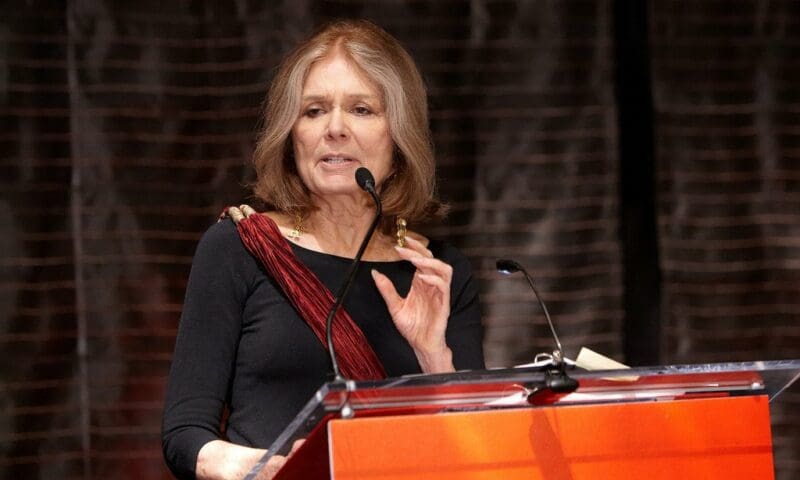
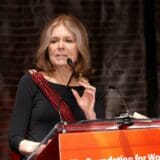
The most wonderful thing about hearing Gloria Steinem speak recently at the Getty House was meeting the two high school students sitting in front of me. These young Latinas had just formed a feminism club at Montebello High, and its first meeting was a big success. The goal of the club, they told me, is to “explore what feminism means to other students and to educate ourselves.” The two were here to get a boost of ideas and inspiration from Steinem — and were they excited.
Over 100 high school students, overwhelmingly female and from a wide diversity of backgrounds, came to hear Steinem and to submit questions to which she responded. It felt like Feminism 101 and seemed to be exactly what the young women came for.
Amy Wakeland, who prefers to be identified as the First Lady of Los Angeles, and her husband, Mayor Eric Garcetti,